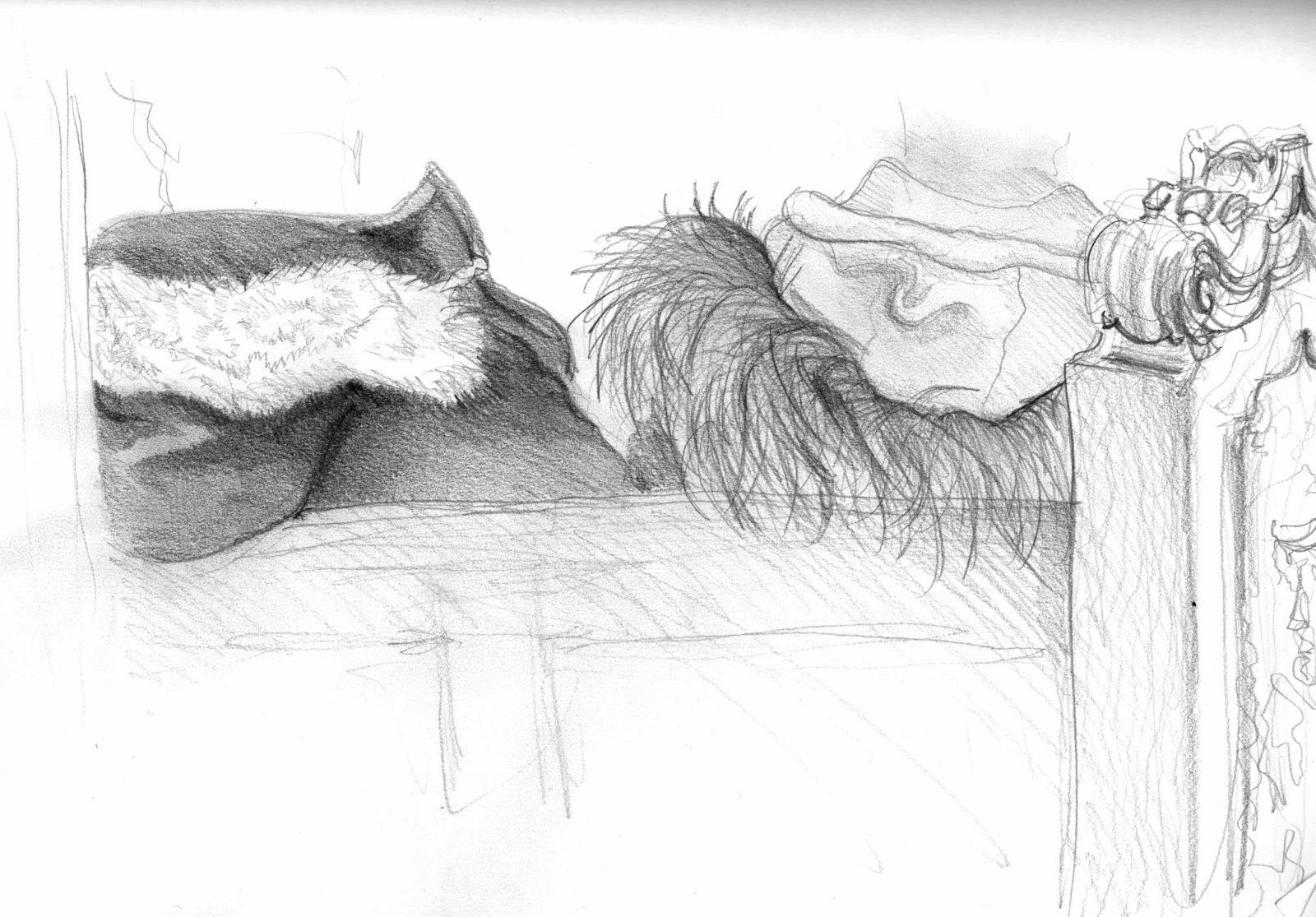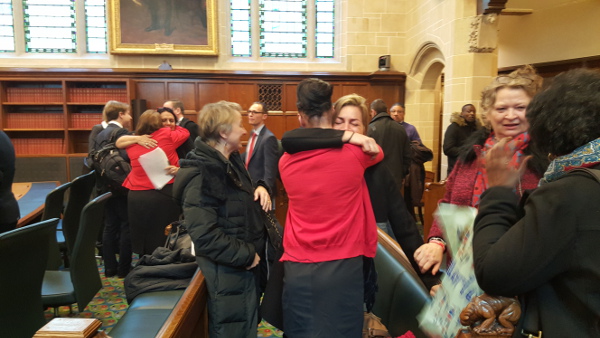[contextly_auto_sidebar]

Sketch by Isobel Williams, R v Jogee, www.isobelwilliams.blogspot.co.uk
After the landmark judgment of R v Jogee in February, it was no surprise that the Court of Appeal put together an all star set of judges for the first hearing on four joint enterprise appeals. The case was heard in Court 4, the Lord Chief Justice’s court before Lord Justice Leveson, Lady Justice Hallet and the Lord Chief Justice himself.
By 10:30 this morning, the court was packed. The first two benches were full of barristers, their seniority marked by the yellowing of their wigs. Behind them sat no less than 12 solicitors. Even the CPS had sent some caseworkers on a noting brief. Behind them sat the ladies of JENGbA, wearing red tops and clutching notebooks.
This campaigning group that have spent the last five years fighting for justice for their loved ones, many serving mandatory life sentences despite evidence that they were not the primarily responsible for the murder. To the left of the bench were four court reporters and three large screens connected the courtroom to the five defendants via video link.
All of this is to say that today was a very important day in the field of criminal justice.
Let me quickly tell you why. This case was the first of a series of cases the Court of Appeal will hear that concern the now discredited law of joint enterprise. In February, the Supreme Court decided that the law had been misinterpreted for the last 30 years, providing a chink of light to those who under this doctrine were sentenced to mandatory life sentences. Defendants who were convicted of murder despite not having the requisite intent to cause serious harm may now have the opportunity for the Court of Appeal to consider whether their conviction is safe.
During the hearing, counsel and the Court addressed the question of what was the scope of the common enterprise? For if the murder lay outside the scope of the enterprise, then the defendant’s conviction would be unsafe.

The JENGbA families at the Jogee ruling in the Supreeme Court in February
The case before the Court showed how difficult it is for an appellate court to answer this question. The legal challenge was brought by four men convicted for the murder of Thomas Cudjoe in a garage forecourt in Ilford, Essex. Unusually, there was CCTV footage of the attack and it makes for chilling viewing.
The footage, shown in the courtroom, shows three men walking slowly towards a car. You see them open the car doors and then start to attack the people inside the car. More people arrive and surround the car. Two defendants, brothers Asher and Lewis Johnson leave the car and later, Jerome Green arrives. He is carrying a knife and uses it to kill Cudjoe.
The Crown’s case is that they were acting as a group from the outset. The defendants surrounded the car and prevented the victim from escaping until Green arrived with a knife. The Crown argued that it was immaterial that Asher and Lewis were not at the scene at the time the victim was killed, as they had played their role in accordance with the previously agreed plan to murder the victim. Counsel for Asher and Lewis Johnson disagreed, saying that there was no ‘reasonable’ evidence of a common enterprise to kill the victim. The brothers were involved in the first stage of the attack, which amounted to kicking and punching, but they then walked away before Green arrived.
The question the appellate court must now decide is whether the jury agreed that the defendants were only involved in the first stage of the attack (the kicking and punching) but convicted them of the second stage of the attack (the murder) because of a now erroneous jury instruction.
The arguments flew back and forth as counsel and the Court tried to piece together how the jury came to convict the defendants. The route to verdict was examined in depth and Lord Justice Leveson in particular pushed counsel for the Johnson brothers on whether the defendants knew that Jerome Green was carrying a knife.
The Lord Chief Justice also wondered aloud whether they can consider the judge’s sentencing remarks, or whether to limit themselves to evidence heard prior to conviction. Lord Justice Leveson considered it a matter of ‘jurisprudence’ and seemed to consider it unjust that the trial judge’s evaluation on the case should be given such primacy.
To the many prisoners and their families, as well as lawyers across the country, if there is one thing to take from today’s hearing it is this. A Jogee appeal will rise and fall on its facts. To succeed an appellant has to show that there is insufficient evidence for a jury to conclude that he or she participated in the offence with the intention to cause very serious harm.
One question that remains to be seen is whether the British justice system – depleted by cuts to legal aid and the chronic underfunding of the Criminal Cases Review Commission – has the resources necessary to conduct such fine grained analyses. If it does not, then the correction in law that Jogee signaled will have little hope of translating into real progress.
The Johnson brothers and their co-defendants now face an anxious night ahead of the second day of hearings tomorrow.
The Centre for Criminal Appeals is an access-to-justice charity law firm that investigates and litigates miscarriages of justice. Our vision is a criminal justice system in which the risk of unsafe convictions and disproportionate sentences is minimized and such mistakes that do occur are remedied rapidly.





